Paul Pogba drug ban reduced to 18 months, can play football from March
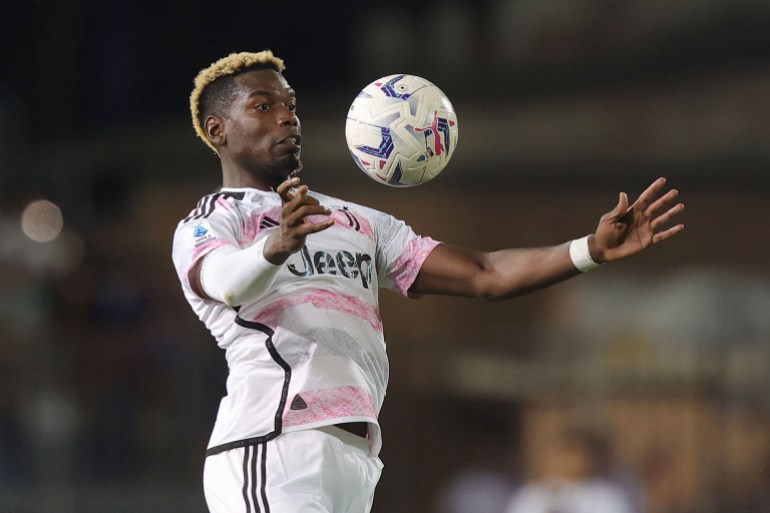
Pogba’s four-year doping ban is slashed on appeal, opening the door to the French star signing with a new club. Paul Pogba’s doping suspension has been cut from four years to 18 months after experts supported the French football player’s insistence that he had unintentionally ingested a banned substance, the Court of Arbitration for Sport (CAS) says. The France international was provisionally suspended by Italy’s anti-doping organisation, NADO Italia, in September 2023 after testing positive for DHEA, a banned substance that raises levels of testosterone. CAS reduced the sentence last week with Pogba saying his “nightmare is over”. The 31-year-old, who has a contract with Italy’s Juventus until June 2026, will be eligible to return to football in March. In a statement released on Monday, CAS said Pogba had argued that his ingestion of DHEA was not intentional and had occurred after he consumed a supplement prescribed to him by a doctor in Florida. “Mr Pogba had been given assurances that the medical doctor, who had claimed to treat several high level U.S. and international athletes, was knowledgeable and would be mindful of Mr Pogba’s anti-doping obligations under the World Anti-Doping Code,” CAS added. “Mr Pogba’s case was supported by several experts. Much of the evidence provided by Mr Pogba was unopposed. “The CAS Panel determined, however, that Mr Pogba was not without fault and that, as a professional football player, he should have paid a greater care in the circumstances.” Pogba last played for Juventus in a 2-0 win at Empoli more than a year ago. The midfielder had a disappointing second spell with Juve due to injuries since he returned to the Turin-based club after his departure from Manchester United on a free transfer in 2022. Pogba and Juventus are open to the prospect of the Frenchman restarting his career elsewhere, according to ESPN. Pogba’s last competitive match for Juventus was on September 3, 2023, in Empoli, Italy, in the Serie A match against Empoli FC at Stadio Carlo Castellani [Gabriele Maltinti/Getty Images] Adblock test (Why?)
Indian club Mohun Bagan out of AFC competition after missing match in Iran
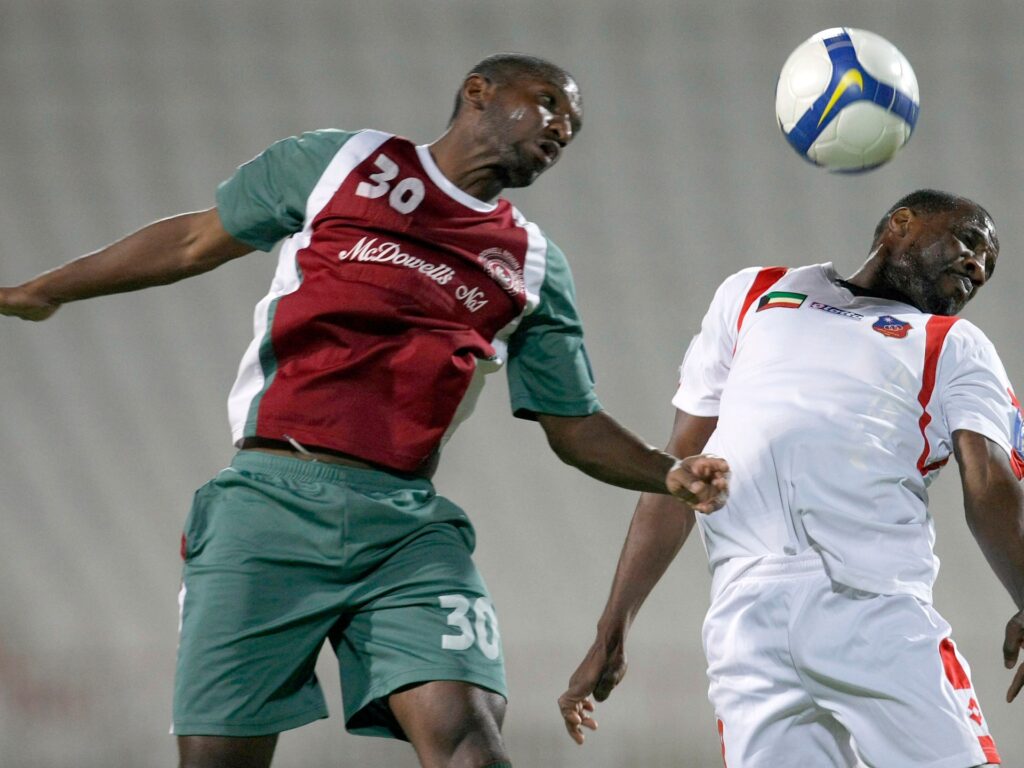
The club did not travel to Tabriz for a group stage match on October 2, the day after Iran launched missiles on Israel. Indian football club Mohun Bagan Super Giant are out of the second-tier regional club competition for the Asian Football Confederation (AFC) after not travelling to Iran for a group stage match. The Kolkata-based Indian Super League (ISL) club, placed in Group A of the AFC Champions League Two, were scheduled to play Iranian club Tractor SC in Tabriz on October 2, the day after Iran launched ballistic missiles towards Israel amid soaring violence in the region. However, several Mohun Bagan players wrote to the club’s management voicing concerns over security if they travelled to the Persian Gulf Pro League team’s home city in northwestern Iran, which was one of the sites from which the missiles were launched, according to reports in Indian media. The match was cancelled after Mohun Bagan did not travel to Tabriz. “Mohun Bagan Super Giant are considered to have withdrawn from the AFC Champions League Two”, the AFC said in a statement on Monday. “All matches played by Mohun Bagan Super Giant are cancelled and considered null and void. For the avoidance of doubt, no points and goals in the club’s matches shall be taken into consideration when determining the final rankings in Group A.” The regional football body said it would refer Mohun Bagan’s matter to the continental body’s relevant committees for further decisions. 🇮🇳 Mohun Bagan Super Giant considered to have withdrawn from #ACLTwo after failure to report to Tabriz for Group A fixture against Tractor FC on October 2.https://t.co/gPXaeOmmgE — #ACLElite | #ACLTwo (@TheAFCCL) October 7, 2024 Mohun Bagan Super Giant have not responded to their ouster from the regional club competition. However, fans of the Indian club have criticised the decision and have called on officials to appeal it in the Court of Arbitration for Sport. “Player and staff safety is paramount,” football agent Baljit Singh Rihal wrote on X. “Punishing teams for refusing to travel to a war-torn country by removing them from the competition is absurd,” he added. Absolutely ridiculous! Player and staff safety is paramount. Punishing teams for refusing to travel to a war-torn country by removing them from the competition is absurd. This decision must be overturned immediately, as it defies all common sense. ⚽️ #MohunBagan https://t.co/osbElHQcvE — Baljit Singh Rihal (@BaljitRihal) October 7, 2024 Mohun Bagan are one of the oldest football clubs in Asia and the current champion of the ISL. They are currently coached by former Spanish football player and coach Jose Francisco Molina. Adblock test (Why?)
Why Palestinians won’t leave their land
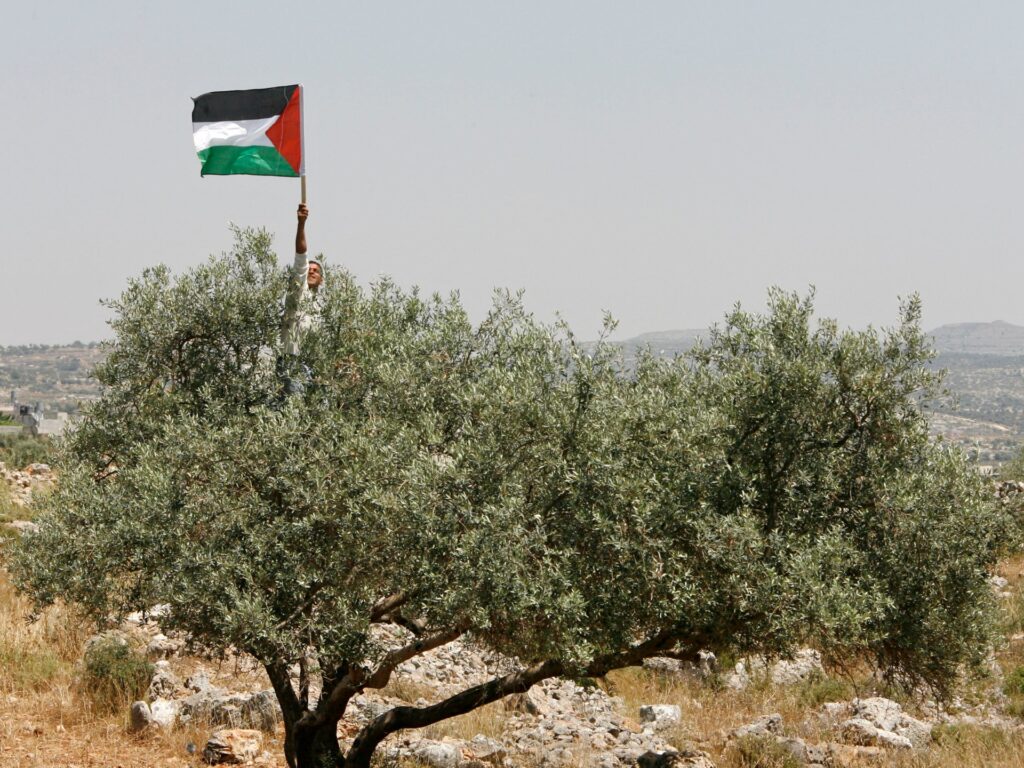
Over the past year, Israel’s genocidal violence has officially killed nearly 42,000 Palestinians in Gaza. Estimates put the real death toll at more than 180,000. Simultaneously, the Israeli occupation forces have repeatedly carried out bloody assaults on the West Bank, massacring more than 740 Palestinians. Last month, the colonial regime expanded its violence into Lebanon, where on September 23, more than 500 people were killed. In two weeks, Israel has murdered more than 2,000 Lebanese people. The Israeli army has flattened whole neighbourhoods in Gaza, digging out roads with bulldozers, bombing infrastructure and utility installations, and pulverising residential buildings. Health and educational facilities have been obliterated – water stations, electricity plants and solar panels destroyed. In short, Israel has tried to wipe out all that sustains life in Gaza. Palestinians have been ordered to “evacuate” the vast majority of the strip and are being crowded into 16 percent of its territory. This same strategy to empty the land has been applied to some areas of the West Bank and now in Lebanon. People are told they can return once Israel’s “military operations” are done. But we all know that the slaughter is meant to clear the land for colonisation. It happened before – during the Nakba of 1948 – and the Palestinians were never allowed to return to their homes despite a United Nations resolution demanding it. That is why Palestinians will not leave. To some outsiders, the enduring Palestinian attachment to their land may seem difficult to understand. It is especially incomprehensible to the Zionists who expelled so many of us, hoping we would just move elsewhere in the Arab world and assimilate. But the Palestinian people have not given up their rightful claim to their land for more than seven decades now. The question of why Palestinians refuse to leave their homes and ancestral lands, even in the face of relentless bombardment, raids, settler encroachment and economic dispossession, is one that is deeply personal and fundamental to Palestinian identity. It is not simply a matter of geography or property ownership but a profound connection to the land that is woven into the fabric of Palestinian history, culture and collective memory. There is a stubbornness to this decision, yes, but also a deep understanding that to leave would be to sever a connection that has been in place for generations. As an agrarian society, the Palestinians have a special place for land in their culture and collective consciousness. The olive tree is the perfect symbol of it. Olive trees are ancient, resilient and deeply rooted – just like the Palestinian people. Families tend to these trees the way they tend to their heritage. The act of harvesting olives, pressing them into oil and sharing that oil with loved ones is an act of cultural preservation. That is why the Israeli army and settlers love to attack Palestinian olive groves. Destroying an olive tree is more than an attack on Palestinian livelihood. It is an attack on Palestinian identity. Israel’s attempt to wipe it out is reflected in its relentless war on Palestinian olive trees. From 1967 to 2013, it uprooted about 800,000 of them. The attachment to the homeland is there even among us, the diaspora Palestinians. I myself was born in Nablus in the occupied West Bank but grew up outside Palestine. Even when far away, I never stopped feeling a connection to the Palestinian land. My family was forced to flee during the second Intifada. My father had watched the Israeli army steal his father’s land and turn it into a military checkpoint, and my mother was being shot at by settlers on her way to work. Theirs was not a decision to voluntarily emigrate; it was an act of survival. Over the past two decades, I have gone back to Palestine regularly, watching settlers steadily encroach on Palestinian land, trying to displace more Palestinians from their homes. What I remembered as a child as clusters of illegally built houses grew to become whole cities – besieging Palestinian towns and villages from all sides. But as I saw Palestinian olive trees burned, Palestinian water rerouted and stolen, and Palestinian homes demolished, I also witnessed resistance and defiance. Palestinians were setting up water tanks to make it through periods of water cut-offs by the Israelis. They were rebuilding their homes at night after a demolition, and they were rushing to help communities like Huwara when a settler raid would take place. In the past year, Israeli violence has become genocidal, but Palestinian “sumud” – steadfastness – has not been diminished. From Jenin to Gaza, Palestinians – under relentless Israeli attacks and bombardment – have not stopped resisting the colonial onslaught through the simple act of living and surviving. The more the occupier tries to make Palestinian life impossible, the more Palestinians come up with makeshift solutions to make it possible – whether it is a washing machine powered by a bicycle, a clay oven made from mud and straw to bake bread or an electricity generator assembled from random machine parts. These are just a few acts of stubborn perseverance, of sumud, crystallised. Meanwhile, in the diaspora, our hearts and minds have never left Palestine. We have watched in pain and in terror as the genocide has unfolded and as the leaders of the countries where we have sought refuge have turned a blind eye. Many in the West do not believe Palestinian life has value. They do not see us as human beings. This relentless dehumanisation of Palestinians has spread despair and hopelessness among our communities. But we have no right to give up when the people of Gaza carry on amid the horrors of genocide. We have to awaken Palestinian sumud within us and mobilise to tell other societies that we are here, we exist and we will persevere in a world bent on erasing us. The metaphor of “we are the land” is not just poetic. It is a lived reality for the Palestinian people. When Palestinians are asked, “Why don’t
New poll shows who Hispanics are backing in southwest swing states
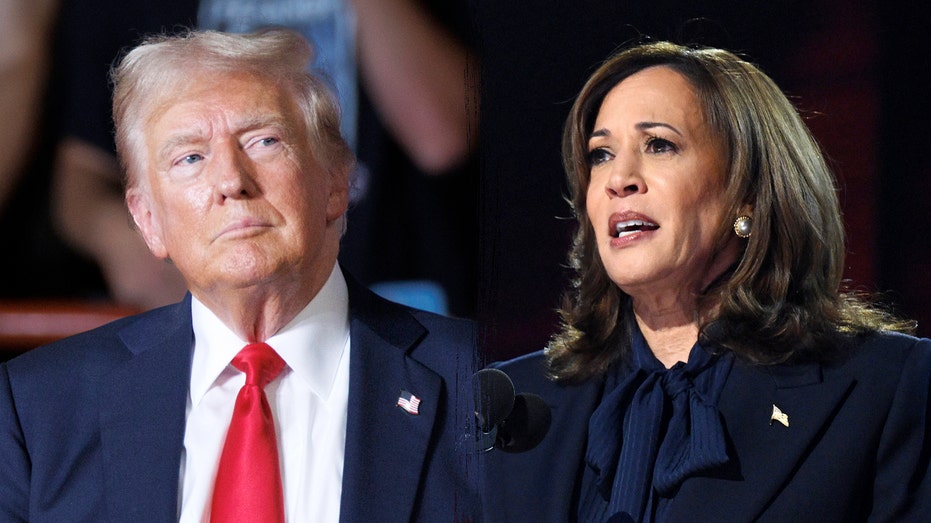
With less than a month to go until Election Day in November, a new poll indicates Vice President Kamala Harris leading former President Trump among self-identified Hispanic voters in Arizona and Nevada, two crucial southwestern battleground states. But Trump has made gains with younger male Hispanic voters compared to four years ago, according to a pair of Suffolk University/USA Today surveys released on Monday. According to the poll, Harris leads Trump 57%-38% among Hispanic voters in Arizona, with Green Party candidate Jill Stein and Libertarian Chase Oliver both under 1% support. Three percent of voters remain undecided. When asked how they voted in the 2020 election, 55% of those Hispanic voters said they voted for President Biden, while a third said they voted for Trump. WHAT THE LATEST FOX NEWS POLLS IN THE 2024 ELECTION SHOW The vice president’s lead over the former president is slightly smaller in neighboring Nevada, at 56%-40%. According to the survey, Independent American Party’s Joel Skousen is just over 1%, Libertarian Chase Oliver is under 1%, and 2% are undecided. When asked how they voted in the 2020 election, 56% said they voted for Biden, while 33% said they voted for Trump. CHECK OUT THE LATEST FOX NEWS POWER RANKINGS IN THE 2024 ELECTION “So far, Harris is falling short of the 24-26 point advantage that Joe Biden carried with Hispanic voters in Arizona and Nevada in 2020, according to the exit polls from those states,” Suffolk University Political Research Center director David Paleologos highlighted. “This Democratic shortfall is largely due to young Hispanic men.” In both states, a majority of men under 50 years of age are choosing Trump over Harris. Trump leads Harris 53%-40% among Hispanic men ages 18-34 in Nevada, and tops her 53%-39% among Hispanic men ages 35-49. In Arizona, the Republican presidential nominee leads the Democratic Party standard-bearer 51%-39% among Hispanic men ages 18-34, and 57%-37% among Hispanic men ages 35-49. TIGHTEST PRESIDENTIAL RACE SINCE 2000 – WITH ONE MONTH UNTIL ELECTION DAY The economy and immigration were the top two issues on the minds of those questioned in the survey in both states. Arizona and Nevada have referendums to protect access to abortion on the ballot in November – and the poll indicates majority support for the measures in both states. Arizona and Nevada – along with Georgia, North Carolina, Pennsylvania, Michigan and Wisconsin – had razor-thin margins in the 2020 presidential election that decided Biden’s victory over Trump. And all seven states are likely to determine if Harris or Trump wins the 2024 election in the race for the White House. The latest surveys in Arizona and Nevada – as well as the other five swing states – indicate margin-of-error races between Harris and Trump. The Suffolk University/USA Today surveys were conducted Sept. 27-Oct. 2, through live interviews of 500 self-identified Hispanic voters in the states of Arizona and Nevada. The overall sampling error for results from each state is plus or minus 4.4 percentage points. Get the latest updates from the 2024 campaign trail, exclusive interviews and more at our Fox News Digital election hub.
Supreme Court denies Biden administration appeal over federal emergency abortion requirement in Texas
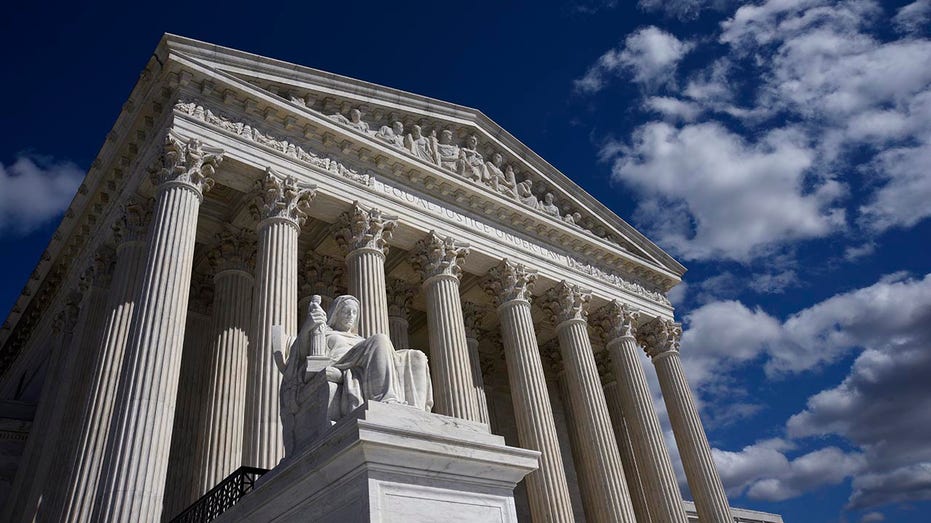
The U.S. Supreme Court decided not to hear oral arguments about whether a Texas state abortion requirement is at odds with a federal emergency care law – permitting the restriction in the Lone Star State to be upheld. Supreme Court justices, for now, are keeping in place a lower court ruling that hospitals in Texas can deny terminating certain emergency pregnancies that violate state law, despite the federal requirement. The Biden administration had requested that the justices overturn the lower court’s ruling, contending that federal law requires hospitals to provide abortions in emergency situations. They referenced last term, when the Supreme Court permitted emergency room abortions to continue in Idaho while a lawsuit continues in federal court. Texas is asserting that its laws are distinct from Idaho’s because Texas has a health exception for pregnant patients. TEXAS SUPREME COURT REJECTS CHALLENGE TO STATE ABORTION BAN’S MEDICAL EXCEPTIONS In Texas, the central legal issue is whether the Emergency Medical Treatment and Labor Act (EMTALA), which mandates hospitals to treat emergency conditions, overrides state laws that prohibit abortion in emergencies. The case focuses on whether a state can stop an emergency physician from performing an abortion if it’s necessary to stabilize a pregnant woman’s health. Previously, the Texas Supreme Court ruled in June against a group of women who suffered serious pregnancy complications and became the first in the country to testify in court about being denied abortion access since Roe v. Wade was overturned in 2022. In a unanimous ruling, the court upheld the Texas law after the women filed a lawsuit in March 2023 seeking clarity on when exceptions to the abortion ban are permitted, arguing the law was confusing for doctors who might turn away patients over fears of repercussions. The court ultimately ruled that the law’s exceptions are broad enough and that doctors would be misinterpreting the law if they decided not to perform an abortion when the mother’s life is in danger. With the SCOTUS decision looming just a month before Election Day, abortion has become a major focus for the Harris-Walz campaign. Fox News’ Landon Mion, Shannon Bream and Bill Mears contributed to this report.
‘Have no objections’: Farooq Abdullah on taking rival PDP’s support for govt formation
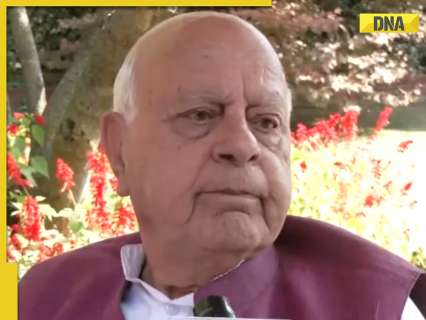
The NC president said he was not averse to taking support of the independents as well but he would not go begging for it.
‘We haven’t done that much’: Former Estonia head says US fears of escalation with Putin are unwarranted
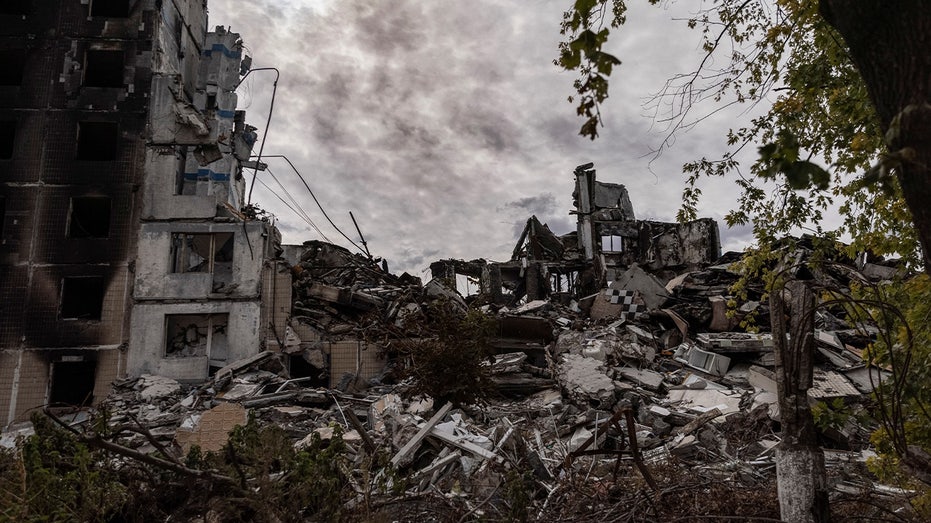
As U.S. support for aiding Ukraine continues to fracture Americans, Kersti Kaljulaid, the former president of Estonia, wants to remind Americans what’s at stake. Estonia, a country in Northern Europe bordered by the Baltic Sea and the Gulf of Finland, is slightly larger than Denmark and has a coastline with 1,521 islands. Kaljulaid described what’s happening across the world as a “tectonic shift,” during a recent interview with Fox News Digital at her nation’s embassy in Washington, D.C. “There is the freedom-loving world. And then there are the others – the new Axis of Evil – China, Iran, North Korea, Russia. China is leading that coalition.” “Ukraine, with its brave action, has offered us the opportunity to score the first victory in this battle, and I think we should not miss it,” she said. And the cost of securing the so-called “freedom-loving world” is relatively little, she argues. “It’s very important to understand that Ukrainians are dying, but we, the West, have not spent anything close to what normally needs to be spent to win war. We are spending at the rate of 0.1% of GDP. And frankly speaking, if we could spend 0.5, then Ukraine will win, and it would be first time in history where a major conflict can be actually be won with so little resources.” Her visit came just after Ukrainian President Volodymyr Zelenskyy visited the U.S., causing a stir among Republicans after he visited Pennsylvania – swing state – with only Democratic lawmakers and called Sen. JD Vance “too radical.” UKRAINIAN STRONGHOLD VUHLEDAR FALLS TO RUSSIAN OFFENSIVE He was here to beg for the U.S.’s blessing to use the long-range missiles it provides to strike deep inside Russian territory. So far, his pleas have gone unanswered. The Biden administration fears provoking nuclear-armed Russia and furthering U.S. involvement in the war. “I think the Ukrainian incursion into Kursk Oblast has demonstrated to us that the Russian threats [of escalation], they carry no value,” Kaljulaid said. In August, Ukrainian troops made a risky move, invading Kursk Oblast and taking over the Russian territory, using their best tanks in the offensive, which left several key villages and towns along the southern and eastern front lines for Russia’s taking. Kaljulaid said she supports Zelenskyy’s request to lift restrictions on the ATACMs, pointing out that Ukraine already uses these weapons to strike in Crimea, which Russia views as its territory. LITHUANIAN FM WARNS RUSSIA CAN DO ‘SO MUCH DAMAGE TO ITS NEIGHBORS’ “You could say, I mean, paradoxically, there is nothing new.” “Putin is not playing the old Cold War game where one side escalated, then the other side did, and then everybody sat down and negotiated the levels down again. I mean, Putin’s regime is a terrorist regime.” She went on: “It doesn’t abide by any rules. All the bridges are burned. So when they decide it’s worth escalating, they will decide anyway, but we should do the right thing and not worry about escalation.” A University of Maryland Critical Issues Poll conducted in July and August found 48% of Americans say the U.S. should support Ukraine in its fight against Russia’s incursion “as long as it takes.” Thirty-nine percent said support should last 1-2 years and another 11% thought it should last 2-5 years. The U.S. has spent around $175 billion aiding the war in Ukraine, $106 billion of which went directly to the government of Ukraine. The rest funded U.S. activities associated with the war and other affected nations in the region. “This is about a third of the money which is considered waste in the COVID pandemic spending [in the U.S.]” “If we compare it to our economic might of the free world, then we haven’t done that much,” said Kaljulaid. “Europeans are doing even more. And this is a common error as well, to think that Europe is not doing its part. Europe’s doing even more than us right now, and I would really like to have a healthy competition. Who does more?” The U.S. has given more money to Ukraine since the outbreak of war, followed by Germany, the U.K., Japan, and Canada. As a percentage of their GDP, Denmark, Estonia and Lithuania topped the ranking, with 1.8, 1.7, and 1.4%, respectively. Kaljulaid declined to say whether relations would become more difficult under a second Trump presidency – Trump has spoken out against aiding Ukraine and claimed he could negotiate peace with Zelenskyy and Putin. In fact, she had an optimistic outlook that Trump could come to support Eastern Europe if elected to a second term, just as she said he did in his first term. “Eastern Europe had quite a big presence. Trump visited Poland, [former Vice President] Mike Pence visited Talinn [Estonia’s capital].” She noted Trump’s work on the Three Seas Initiative and actions to end Syria’s chemical weapons attacks on its civilians. “That was not a simple thing. It was a quite courageous thing, and it was exactly what you expect from Republican foreign policy of the United States – to defend the free world.”
Weather Update: IMD predicts heavy rains for THESE states, issues yellow alert in parts of Kerala till..; check forecast
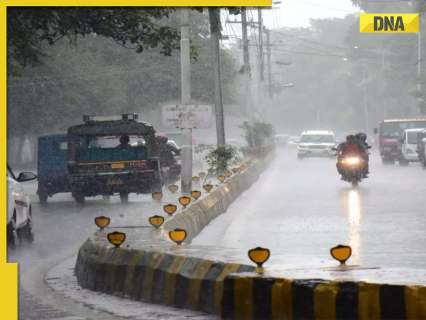
The IMD has issued a yellow alert in several Kerala districts, warning of heavy rain.
RG Kar case: Sanjoy Roy raped, murdered Kolkata doctor, says CBI in its chargesheet

Roy allegedly committed the crime on August 9 when the victim had gone to sleep in the seminar room of the hospital during a break, it said.
Texas students with immigrant parents lost out on college aid because of FAFSA glitch
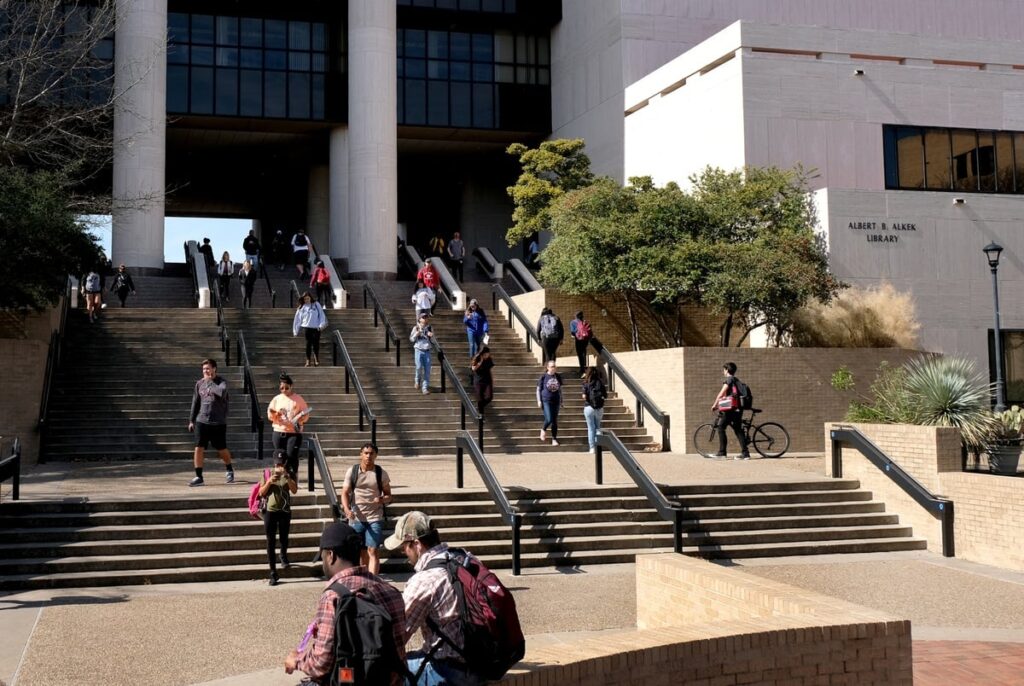
The glitch kept the students from submitting the form on time, which put them last in line to receive aid this year.
